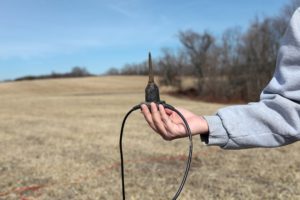All Categories
Featured
Table of Contents
Geophysical Surveys in West Perth Western Australia 2022
Are you seeking the ideal kind of b-school? Get in touch with MBA programs seeking prospects like you. Explore schools of all sizes, ranked colleges, city and big-campus schools and more. Apply. Pay. Prep. Research study. Be successful. We've got you covered. Get in touch with master's programs around the country to get an edge over the competitors.

A geophysicist studies various aspects of the earth. According to the U.S. Geological Study, they study gravity, magnetic, electrical, and seismic activity occurrences. Geophysicists also record, assess, and take measurements of geographic functions and abnormalities. Enjoy a video to discover what a geophysicist: Geophysicists need to make a minimum of a bachelor's degree; however, this is for an entry-level position.
If you want study you must pursue a Ph. D. Undergrad coursework normally consists of geology, mathematics, environmental science, or physics. Postgraduate degree require more specific research studies in the specialized of choice. Locations can include oceanography, atmospheric physics, climatology, planetary, petroleum, environmental, and mining. Job prospects are greater if you have a strong background in computer science or technology.
Geophysics, Engineering Geophysics And Applied ... in Calista Australia 2020
Access to these chances might be limited depending upon where you live; nevertheless, internships or summer programs with geophysical business, university geophysics department, or the U.S. Geological Study can be options. You can discover a list of a list of opportunities on the United States Geological Study (USGS) websites' Pathway Programs tab (opens in another link).
Geophysicists also work with computers while researching, so computer system courses can likewise be valuable, as discussed previously in this article. Numerous geophysicists specialize in a location of geophysics.
A geophysicist's duties can include determining, tracking, and documenting data from numerous physical homes on earth. Geophysicists frequently have to travel worldwide to take a look at geological occasions that have actually taken place or may have been predicted.
5 Surface Geophysics in Bickley Western Australia 2023
Jay Wellik, a geophysicist, research studies volcanos. Geophysicists generally work full-time hours; nevertheless, they frequently work irregular hours, as discussed formerly.

You can find additional information about Geophysicists in addition to additional academic products on the U.S. Geological Study website (links open in a new window). Laura Stern, of the U.S. Geological Study at the Gas Hydrates Laboratory in Menlo Park, California: We make a number of different hydrates in the laboratory.
We also make carbon dioxide hydrate, ethane hydrate, gas, a number of various structures. It's about 100 degrees chillier than the temperature at which these hydrate samples would dissociate, when they would break down to ice plus gas on the tabletop.
Marine Geophysicist in Wattleup Australia 2022
So the samples we make, their polycrystalline. They look like snow, it looks like compacted snow however truthfully, it does include gas inside. Take a little piece off here and as it heats up, you'll start to see it pop. It's reverting to ice plus gas and after that as the ice would melt as it continues to warm, it will wind up being water plus gas.
My name is Steve Kirby, I'm a Geophysicist here at the U.S. Geological Study in Menlo Park. I work with Laura Stern who is likewise a Geophysicist in this lab that is dedicated towards the investigation of planetary ices and gas hydrates. Gas hydrates in nature occur in extremely remote places and they are extremely complex with the interactions and conditions that they form under and samples that are brought up are under some sort of alternation or decomposition.
This is an uncommon lab and there are only a handful of them worldwide and we are very fortunate to be here at the Geological Survey and to have the opportunity of dealing with them. Bureau of Labor Data, U.S. Department of Labor, Occupational Outlook Handbook, Geoscientists. National Center for O * Web Advancement.
Geophysical Surveys For Planning & More in Safety Bay Oz 2023
This video was produced by the federal government for the U.S. Geological Survey. The USGS Gas Hydrates Laboratory is moneyed by the Department of Energy and the USGS Gas Hydrates Job.
Latest Posts
Where Can A Geophysicist Work Other Than The Oil Industry? in Ellenbrook Oz 2021
Geophysicist in Como Aus 2022
Geophysical Surveys Definition & Meaning In Stock ... in Karrinyup Aus 2022